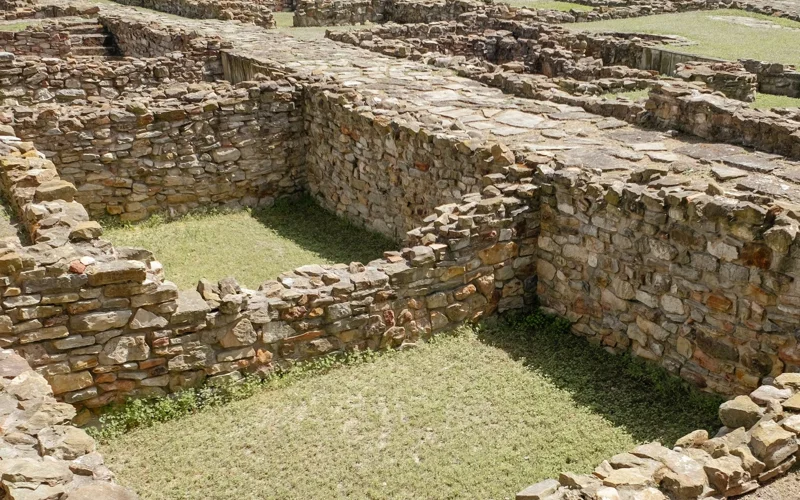Indian archaeologists uncover multi-era settlementlinked to early five distinct civilisations
The Archaeological Survey of India, a government body under the Ministry of Culture, has unearthed the remains of a significant ancient settlement in Bahaj village, Deeg district, Rajasthan, revealing evidence of continuous habitation by at least five distinct civilisations, TV BRICS reports.

According to the recearch team, he discoveries, spanning from the early Vedic period to the Gupta era, offer new insights into India’s ancient cultural and technological legacy.
Excavations conducted in 2024 revealed metal weapons, terracotta figurines, ritual objects, utensils, and building remains associated with the Mahabharata era and the Maurya and Shunga dynasties.
Structures made from earthen pillars and furnaces were uncovered, along with tools crafted from bone, copper and iron, and ornaments fashioned from conch shells and semi-precious stones. These finds reflect the sophisticated craftsmanship and metallurgical expertise of early inhabitants, the source claimed.
A remarkable component of the excavation was the identification of a 23-metre-deep ancient river channel, or palaeochannel. Historians and archaeologists suggest that this may be linked to the long-debated Saraswati river, described in the Rigveda as a major watercourse that nourished early civilisations.
The site also yielded 15 ritual fire altars (yajna kunds) and terracotta idols depicting Shiva and Parvati, believed to date prior to 1000 BCE. Small copper coins and sand-filled pots from the Mahajanapada period were recovered from these sacred installations, pointing to ritualistic and economic practices of the time.
Earlier, it was reported that archeologists have discovered a 6,000-year-old skull in Turkish Mediterranean region.
